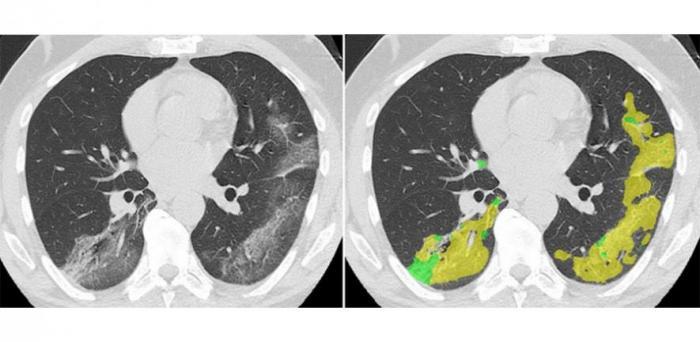An open-source artificial intelligence (AI) tool, combining chest imaging data with laboratory and clinical data, is being developed by Cambridge researchers to support the rapid diagnosis and triaging of patients with COVID-19 in the UK.
The team, led by Professors Carola-Bibiane Schönlieb and Evis Sala, brings together expertise in AI for imaging with expertise in radiology and clinical applications from Addenbrooke’s and Papworth Hospitals, as well as collaborators from the UK, China, Austria and Italy, to develop a prediction model that can rapidly and reliably diagnose and suggest a prognosis to doctors.
Reverse-transcription polymerase chain reaction (RT-PCR) tests are currently the most common tool used to diagnose COVID-19, but they are only up to 70% sensitive, meaning there are up to 30% false negatives.
While chest X-rays and CT scans provide valuable diagnostic and monitoring information that can complement laboratory and clinical data, it is a complex task typically done by radiologists, whose expertise is often in high demand. Fast and accurate diagnosis of patients in order to limit disease spread, together with the rapid determination of whether a patient is likely to recover, require intensive care unit (ICU) admission, or intensive ventilation, is key to allocating resources and to improving patient outcomes.
“AI offers huge potential to support agile clinical decision making, ensuring patients receive the most appropriate support and leading to better patient outcomes,” said Sala, who is based at the Department of Radiology.
Recent studies have suggested that using AI could have a meaningful impact on the management of patients with COVID-19. AI tools such as deep learning can offer automated image analysis and integration with clinical data to help clinicians make more informed decisions for treatment.
Reproduced courtesy of the University of Cambridge
